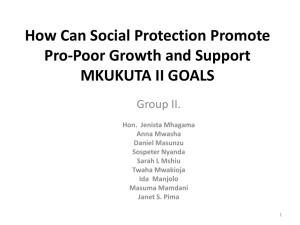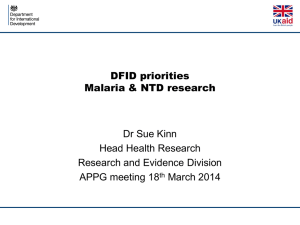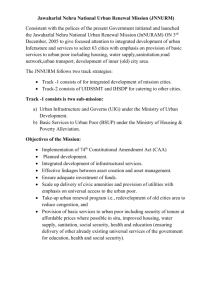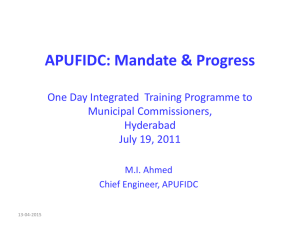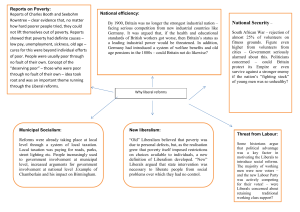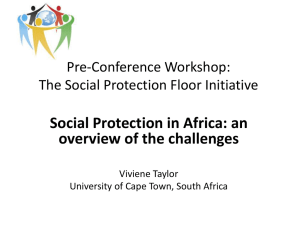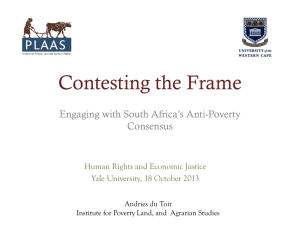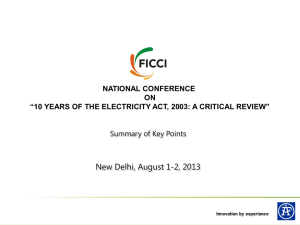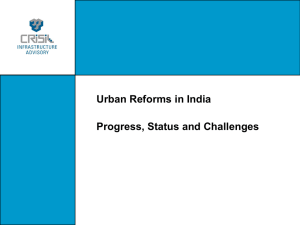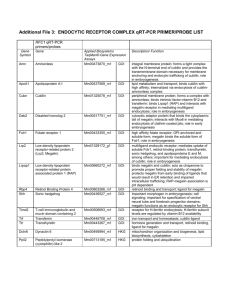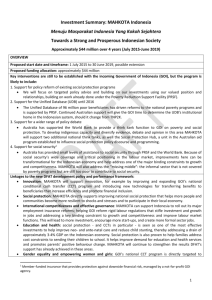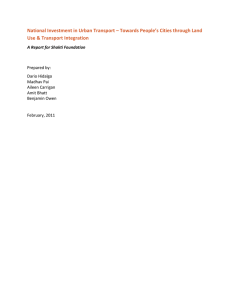Title: Support to National Policies for Urban Poverty Reduction
advertisement
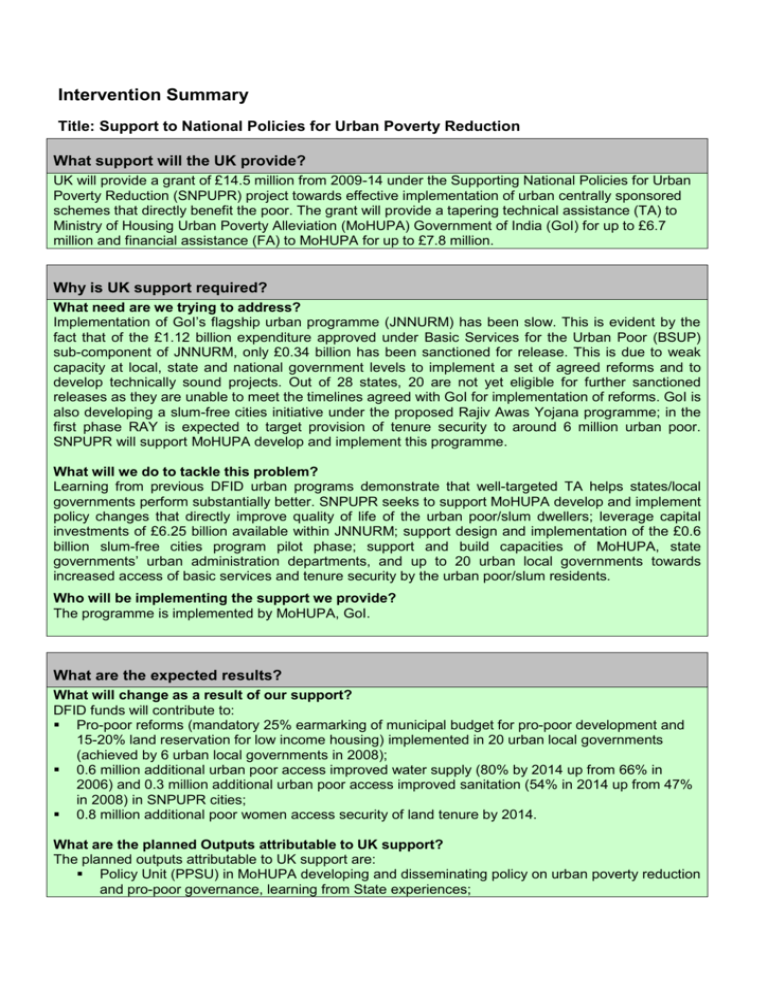
Intervention Summary Title: Support to National Policies for Urban Poverty Reduction What support will the UK provide? UK will provide a grant of £14.5 million from 2009-14 under the Supporting National Policies for Urban Poverty Reduction (SNPUPR) project towards effective implementation of urban centrally sponsored schemes that directly benefit the poor. The grant will provide a tapering technical assistance (TA) to Ministry of Housing Urban Poverty Alleviation (MoHUPA) Government of India (GoI) for up to £6.7 million and financial assistance (FA) to MoHUPA for up to £7.8 million. Why is UK support required? What need are we trying to address? Implementation of GoI’s flagship urban programme (JNNURM) has been slow. This is evident by the fact that of the £1.12 billion expenditure approved under Basic Services for the Urban Poor (BSUP) sub-component of JNNURM, only £0.34 billion has been sanctioned for release. This is due to weak capacity at local, state and national government levels to implement a set of agreed reforms and to develop technically sound projects. Out of 28 states, 20 are not yet eligible for further sanctioned releases as they are unable to meet the timelines agreed with GoI for implementation of reforms. GoI is also developing a slum-free cities initiative under the proposed Rajiv Awas Yojana programme; in the first phase RAY is expected to target provision of tenure security to around 6 million urban poor. SNPUPR will support MoHUPA develop and implement this programme. What will we do to tackle this problem? Learning from previous DFID urban programs demonstrate that well-targeted TA helps states/local governments perform substantially better. SNPUPR seeks to support MoHUPA develop and implement policy changes that directly improve quality of life of the urban poor/slum dwellers; leverage capital investments of £6.25 billion available within JNNURM; support design and implementation of the £0.6 billion slum-free cities program pilot phase; support and build capacities of MoHUPA, state governments’ urban administration departments, and up to 20 urban local governments towards increased access of basic services and tenure security by the urban poor/slum residents. Who will be implementing the support we provide? The programme is implemented by MoHUPA, GoI. What are the expected results? What will change as a result of our support? DFID funds will contribute to: Pro-poor reforms (mandatory 25% earmarking of municipal budget for pro-poor development and 15-20% land reservation for low income housing) implemented in 20 urban local governments (achieved by 6 urban local governments in 2008); 0.6 million additional urban poor access improved water supply (80% by 2014 up from 66% in 2006) and 0.3 million additional urban poor access improved sanitation (54% in 2014 up from 47% in 2008) in SNPUPR cities; 0.8 million additional poor women access security of land tenure by 2014. What are the planned Outputs attributable to UK support? The planned outputs attributable to UK support are: Policy Unit (PPSU) in MoHUPA developing and disseminating policy on urban poverty reduction and pro-poor governance, learning from State experiences; A Network of Resource Centres is created which supports pro-poor urban policy development and programme implementation; and Capacities of selected State and city/town governments are strengthened to effectively implement pro-poor and sustainable reforms and programmes under JNNURM How will we determine whether the expected results have been achieved? Robust monitoring systems are in place to provide regular information on progress against effective results – an output/success-based contract for the TA Consultant has been drawn which ensures regular robust monitoring of progress. Regular annual reviews are carried out to evaluate whether and how objectives are being achieved. A mid-programme third-party evaluation will be undertaken in Dec 2011; based on findings DFID will consider support for full period of the Project (from March 2012 up to March 2014).
